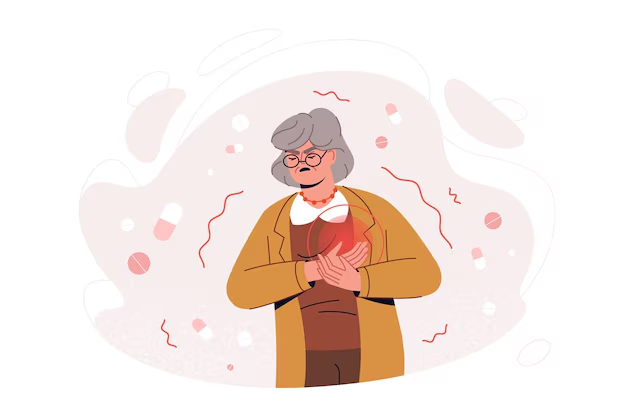Stress
Stress and anxiety are often thought of as emotional and mental health issues, but they can have a deep impact on physical health as well, particularly the heart. In today’s fast-paced world, regular stress and anxiety are becoming increasingly common, and their impacts on the body can be authoritarian. One of the most concerning links is how stress and anxiety can contribute to the event of a heart attack.
How Stress Affects the Heart
When the body encounters stress, it triggers the “fight-or-flight” response. This reaction releases hormones like adrenaline and cortisol, which equip the body to deal with immediate danger. While this reaction is helpful in short bursts, chronic stress supports the body in a constant state of alert, which can hurt the cardiovascular system over time.
Prolonged vulnerability to stress hormones can cause an expansion in blood pressure, inflammation, and cholesterol levels—characteristics that are all linked to the action of heart disease. The combination of these effects raises the risk of encountering a heart attack. Further, people under chronic stress may assume unhealthy habits like smoking, overeating, or avoiding exercise, which also increases their risk of heart-related crises.
The Affinity Between Anxiety and Heart Attacks
Anxiety, like stress, can have a direct effect on heart health. Individuals with anxiety disorders often participate in physical symptoms such as rapid heart rate, chest pain, and shortness of breath. These manifestations can mimic those of a heart attack, leading to further panic and stress, which may worsen the problem.
Research shows that people with high levels of anxiety are more likely to develop heart disease and have an improved risk of suffering a heart attack. This is partly because stress can exacerbate other risk factors like high blood pressure, heartthrobs, and irregular heartbeats, which strain the heart and arteries over time.

Stress-Induced Heart Attacks: A Real Threat
A condition comprehended as “stress-induced cardiomyopathy” or “broken heart syndrome” can occur when severe emotional or physical stress leads to a temporary weakening of the heart muscle. Although this condition mimics the signs of a heart attack, it doesn’t involve blocked arteries. Nevertheless, stress-induced cardiomyopathy can still lead to severe heart intricacies and increases the likelihood of a future heart attack if left unmanaged.
Chronic stress can also trigger a cramp in the coronary arteries, reducing blood flow to the heart, which can lead to a heart attack even in individuals who do not have underlying heart disease.
Addressing Stress and Anxiety to Protect Your Heart
To reduce the risk of stress and anxiety contributing to a heart attack, it’s crucial to adopt healthy stress control techniques. Regular exercise, mindfulness meditation, deep breathing exercises, and yoga can help alleviate stress and reduce anxiety. Keeping a healthy diet, staying physically active, and obtaining enough sleep also support heart health.
In cases where stress or anxiety is overwhelming, pursuing help from a mental health professional can make a significant difference. Cognitive-behavioral therapy (CBT) and other therapeutic approaches can help manage anxiety and reduce the long-term risk of heart-related issues.
Finding Stress and anxiety have a decisive impact on heart health, and their role in triggering a heart attack should not be minimized. Chronic stress and untreated anxiety can weaken the heart, promote blood pressure, and increase inflammation, all of which contribute to a higher risk of cardiovascular events. By addressing stress effectively and addressing anxiety, you can rescue your heart and reduce the likelihood of encountering a heart attack.







